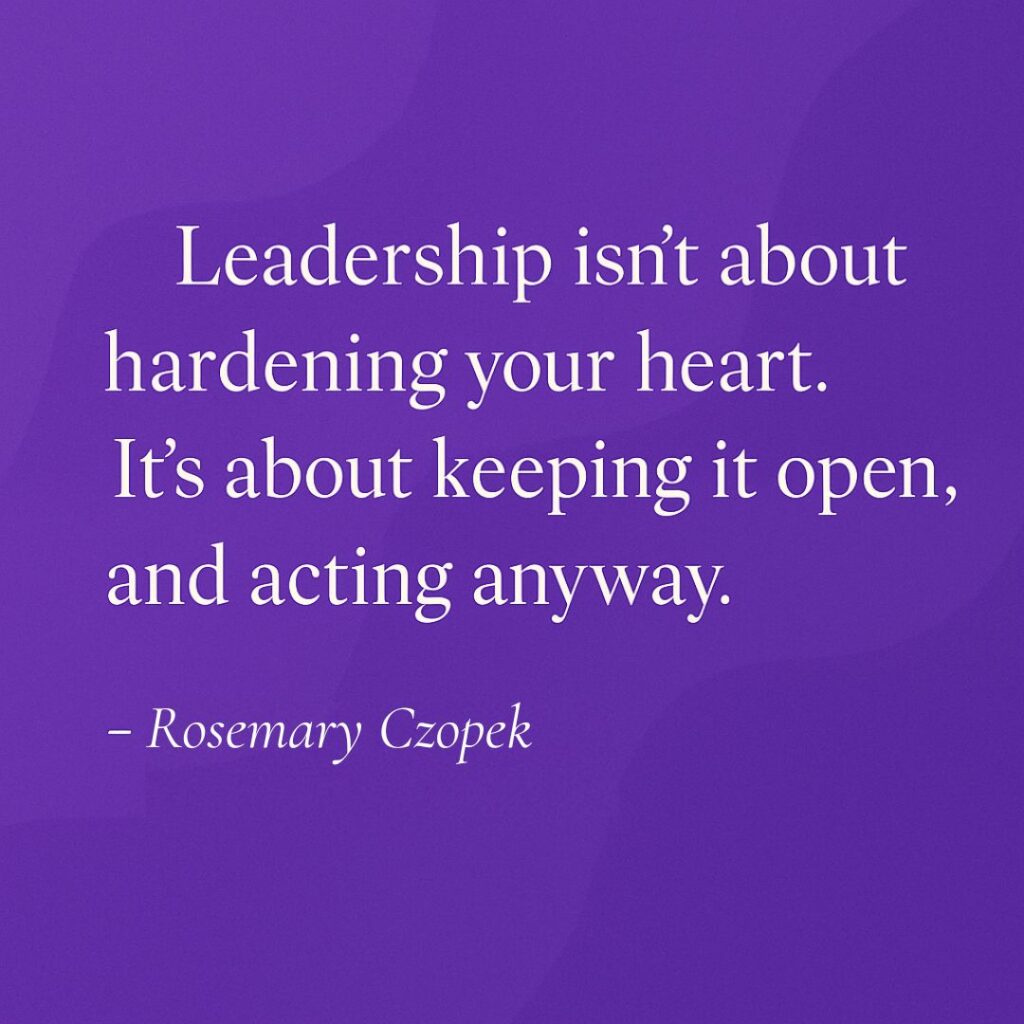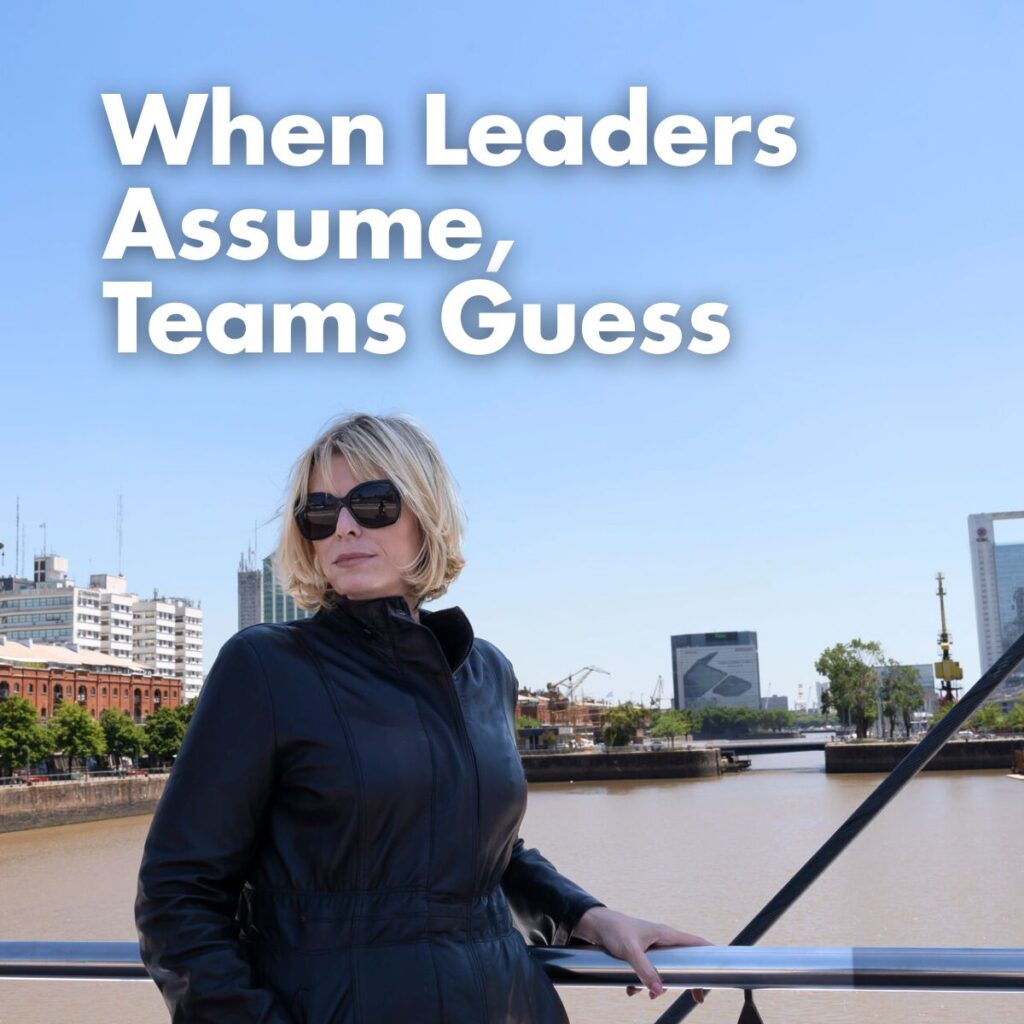I cried the first time I had to fire someone. I felt it was my fault. As a founder, I’ve always believed we don’t just hire people, we invite them into our vision. We hope they’ll care as much as we do. And when they don’t, or when it doesn’t work, it feels like a personal failure.
For a long time, I kept people too long because I wanted to avoid admitting that failure. Instead, I twisted myself trying to make things work that clearly weren’t. I thought being a “good leader” meant being endlessly patient.
It took me years to understand that being a good leader actually means telling the truth kindly, clearly, and as soon as things become clear.
That’s why I believe most of us don’t burn out from overworking. We burn out from emotional entanglement, from holding the entire relationship on our shoulders, without anyone saying, “Hey, this isn’t working and here’s why.”
It took me years to learn that leadership isn’t about hardening your heart. It’s about keeping it open and acting anyway.

You Might also like
-
When Leaders Assume, Teams Guess
When Leaders Assume, Teams Guess
One of the biggest drains on execution isn’t workload.
It’s mental overhead.
When priorities are unclear, people spend energy interpreting instead of acting.
They replay conversations.
They check messages twice.
They hesitate, not because they don’t care, but because they don’t want to get it wrong.
That hesitation rarely shows up as a problem on paper.
It shows up as slower decisions, muted ownership, and work that feels heavier than it should.
Clarity removes that weight.
When leaders name what matters most, what can wait, and how decisions will be made, something subtle but powerful happens.
People stop bracing.
They stop guessing.
They move.
Not with more pressure.
With more confidence.
I’ve learned that leadership under pressure isn’t about pushing harder or communicating more often.
It’s about communicating more clearly.
Saying the obvious.
Closing open loops.
Making priorities explicit instead of implied.
That’s what restores momentum.
That’s what gives teams room to take ownership without fear.
If execution feels harder than it should, ask yourself this:
What am I assuming people already know?
The answer is usually where clarity is missing. Post Views: 123
Post Views: 123 -
Leadership That Starts at the Kitchen Table
Marlene Dandler built her company and a community from her kitchen table.
This week, I sat down with Marlene Dandler, founder of Seashore Academy, a fast-growing network of private hybrid schools that started right there — at her kitchen table.
What inspired me most wasn’t just how far she’s come, but how she leads: with clarity, care, and the conviction that great education, and great leadership, both start with human connection.
My three top takeaways:
1️⃣ Hiring for alignment, not background
Marlene explained that her toughest hires were leaders from traditional education, talented people who struggled to embrace Seashore Academy’s flexible hybrid model. What finally worked was finding a leader who shared her excitement for change and innovation.2️⃣ Leadership energy trickles down
She compared leading her company to parenting: when she’s calm, the household, or the business, is calm. Her morning run and prayer aren’t just self-care, they’re her leadership practices.3️⃣ Culture travels through connection
She keeps her on-site and remote teams united through short daily video huddles and by sharing photos from the classrooms, reminding everyone, even those thousands of miles away, of the joy they’re helping create.Conversations like this remind me how much leadership is about intention — who we hire, how we show up, and how we stay connected across distance.
Grateful to Marlene for sharing her story, her heart, and her wisdom.
Full episode coming soon.
 Post Views: 405
Post Views: 405 -
Hiring a Business Coach Isn’t Weakness, It’s Wisdom
Is hiring a business coach a sign of weakness?
I don’t think so.
As companies grow, so do the problems, and we at Staff4Half are no exception.
More people means more moving parts, and more decisions to make. And suddenly, it’s not about the ideas of the founder anymore (sadly), it’s about how well we can leverage the knowledge of the whole team.
And that’s where it gets hard. Inside the company, we all carry our own baggage:
preconceived ideas
entrenched communication styles
blind spots we don’t even notice
I believe that especially when we as founders want to create an extraordinary company culture of support and fostering, being open and honest in the interest of the business can become harder.
And that’s where I see an outside coach brings immense value.
A coach challenges us as a team without politics and can help us see things we’d never catch on our own, so that we can stay friends while also doing what is right for the business.
That is, I believe, the beauty of an outside coach.
And it’s not a weakness, it’s a strength!
P.S.: Did you know that women are more likely to hire a business coach than men? I found some reports that suggest that half of business coaching is done in woman-led companies (when women only lead a minority of businesses).
What’s your observation?
 Post Views: 336
Post Views: 336


